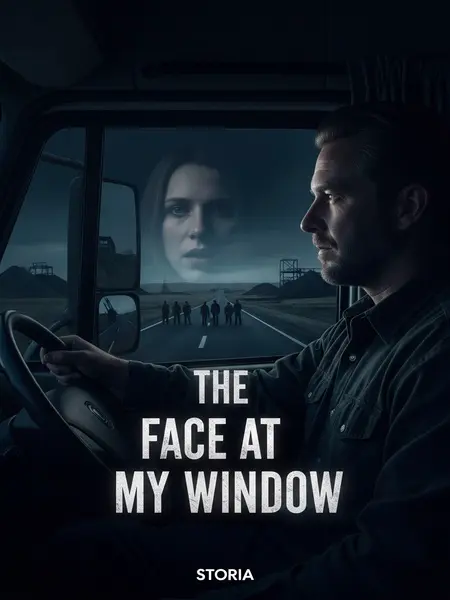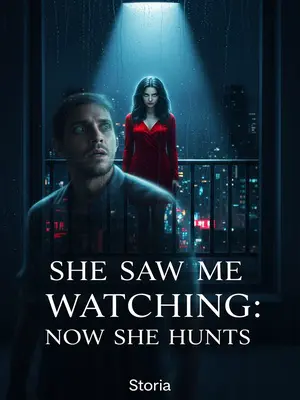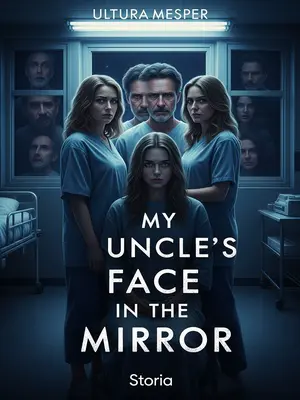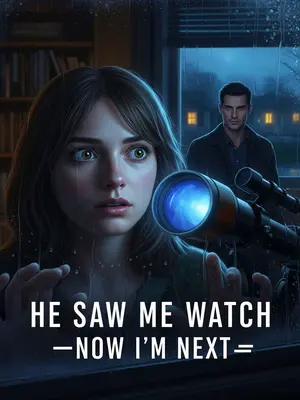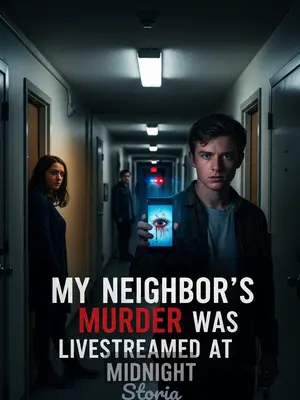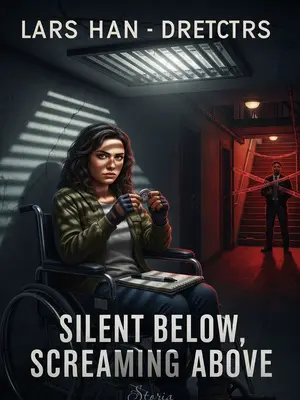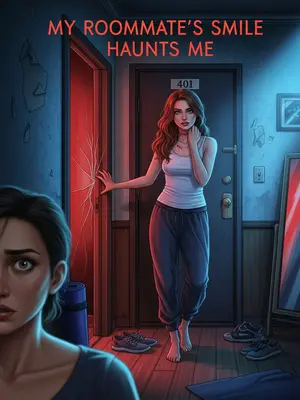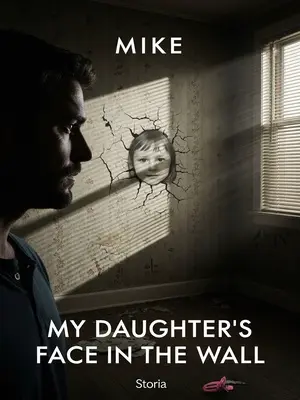Chapter 3: Bad Luck in the Blood
“What’s a coal husk?” Eric asked, confused.
He frowned, glancing around to make sure nobody else was listening. “It’s... it’s like a shell. Old-timers say when coal covers a body, it forms a husk. Not quite bone, not quite coal—something in between.”
“It’s something that forms in coal. The old folks say if coal covers human bones, a coal husk will form.”
He traced a rough shape on the table with his finger. “They say it looks like a skeleton, but the skin’s all wrong—black, wrinkled, like old leather.”
“That thing is pitch black, like some bones holding up a piece of wrinkled human skin.”
He shivered, eyes far away. “Miners used to say you find one, you leave it be. Bad luck to mess with the dead.”
Eric’s face turned white. I knew he was thinking of what we’d seen in the bathroom that day.
He swallowed hard, hands shaking. I put a hand on his shoulder, trying to steady him. “It’s probably just a story, kid,” I whispered, but I didn’t believe it myself.
“Does it hurt people?” Old Joe asked.
Garrison shook his head. “Not usually. Just scares folks, gives ‘em bad dreams. But sometimes... sometimes people disappear.”
“Not exactly—just scary and unlucky.”
He shrugged, but his eyes said more than his words. “Some folks say it’s just superstition. Others say it’s a warning.”
Old Garrison frowned. “If it was another mine, it’d be fine, but this place is already considered bad luck. Didn’t you notice the locals don’t want to work here?”
He glanced around the mess hall, voice dropping even lower. “You see many local boys here? Most of the crew’s from out of state. They know something we don’t.”
“What’s wrong with this mine? Did someone die here?” Eric asked, horrified.
Garrison hesitated, then nodded. “Plenty have. Accidents, cave-ins, some say worse.”
“More than just deaths.”
He leaned closer, eyes darting. “They say this place was cursed long before the mine. Some kind of old ritual ground—settlers did things best left forgotten.”
Old Garrison lowered his voice. “I heard from locals, this place used to be a sacrificial ground for some ancient settlers—they did all kinds of dark rituals.”
He crossed himself, glancing at the ceiling. “My granddad used to say the land remembers. You dig too deep, you wake up things that should stay buried.”
“He’s just trying to spook you,” another old miner, Gus, came over.
Gus clapped Garrison on the back, grinning. “Don’t listen to him. He’s been telling ghost stories since ‘82.”
He’s half local, married a local woman, and has lived here for years.
Gus had a slow drawl, the kind you pick up from decades in the same small town. He wore his cap pulled low, a toothpick stuck in the corner of his mouth. “Don’t let the old man scare you, son.”
“When they built this road, a lot of people said it couldn’t be done—said there were spirits underground.”
He winked at Eric. “Folks said the ground would swallow the road, or the trucks would vanish. But here we are, right?”
“But what happened? The army came in, not only built the road, but even blasted open the hills.”
He spread his hands, grinning. “Didn’t stop us. Army boys blew the tops off those hills, laid down asphalt, and the world kept spinning.”
“Over the years, there’ve been some minor incidents, but nothing major. It’s just that this place is so remote, locals don’t want to work far from home, so they avoid it.”
He shrugged. “People talk. But it’s just a job, same as anywhere. Only thing to fear is running out of coffee.”
Old Garrison smiled a little awkwardly.
He picked at his bread, not meeting anyone’s eyes. “Maybe he’s right. Maybe I’m just getting old.”
After talking with Old Garrison and Gus, I thought Eric would be less scared.
We finished our meal in silence, the stories hanging in the air. I figured a good night’s sleep would do us all some good. I told Eric not to let the old-timers get in his head.
But that fool still dragged me up in the middle of the night to go to the bathroom with him.
He shook me awake, eyes wide and wild. “C’mon, Mike, just in case.” I groaned, but pulled on my boots anyway. Some things you do for friends, even if you don’t believe in ghosts. I grabbed my flashlight, yawning.
The dorm toilets are in the hallway. Eric took a flashlight, still shaking, scared he’d see something again.
He kept the light pointed at every shadow, jumping at every creak. I tried to joke, but he wasn’t having it. The air in the hall was cold, the floorboards groaning under our feet. I wished I’d brought my whip.
The mine is a lot brighter at night than Dry Creek, with lights on outside the yard.
Floodlights lit up the yard, casting long shadows. The trucks gleamed under the lamps, silent and still. It felt safer, but not by much. I watched the shadows dance across the walls.
I heard the shaft often runs three shifts, so people work at night too, but lately, with the coal husk rumors, no one goes down at night.
The elevator sat idle, cables creaking in the wind. Even the bravest miners kept their distance after dark. I couldn’t blame them.
At this hour, it was very quiet around the dorm.
The only sounds were Eric’s nervous breathing and the hum of the lights. Every now and then, a door slammed somewhere down the hall, making us both jump. I tried not to let it get to me.
I was waiting for Eric to finish when I faintly heard the sound of a truck starting up outside the window.
It was a low rumble, familiar and out of place. I moved to the window, peering through the glass, trying to spot the source. My breath fogged the glass.
Our trucks were parked not far from the dorm, but who would be driving at midnight?
I counted the rigs, squinting at the shadows. One was pulling away, taillights glowing red in the darkness. My gut clenched.
Curious, I went to the window and saw a truck leaving the yard, heading toward the loading point.
The engine growled, headlights cutting through the fog. It turned onto the access road, disappearing into the night. I pressed my face to the glass, trying to see more.
It was too far to tell whose truck it was. Maybe the mine had other arrangements.
I shrugged, figuring maybe it was a night shift delivery, or someone heading home early. Still, it left me uneasy. I made a mental note to check the trucks in the morning.
The next day, we lined up to load as usual.
The yard was busy, everyone moving with purpose. The sky was gray, clouds hanging low. I checked the trucks, making sure everything was ready. My nerves buzzed.
This time Frank’s crew didn’t cause trouble, but I noticed their convoy seemed to be missing a truck.
I counted twice, just to be sure. One of their rigs was gone, no explanation. Frank avoided my eyes, barking orders at his crew. I didn’t ask.
I was a little uneasy this trip, because the weather wasn’t good.
The wind had picked up, rattling the tarps. I could feel the storm brewing, the kind that makes you wish you were anywhere but here. My gut twisted.
As soon as we left the mine, the wind picked up.
It howled across the prairie, shaking the trucks. Sand whipped across the road, stinging my face every time I stepped outside. I pulled my cap low.
By noon, the wind had kicked up sand across the prairie, blocking our view, so we had to slow down.
Visibility dropped to nothing—just a wall of tan and gray. We crawled along, headlights barely cutting through the haze. Every mile felt like a gamble. My shoulders ached from gripping the wheel.
Luckily, we were driving big rigs loaded with coal—not easy to blow over.
The weight kept us grounded, but the wind still pushed us sideways. I kept both hands tight on the wheel, knuckles white. My jaw ached from clenching my teeth.
But with the view getting worse and the wind howling, everyone felt uneasy.
The radios crackled with static, nobody saying much. I checked the mirrors every few seconds, half-expecting to see something chasing us through the dust. The silence was heavy.
I was worried Eric wouldn’t drive steadily, so I switched with him.
He didn’t argue, just slid over to the passenger seat, eyes glued to the road ahead. “Thanks, Mike,” he muttered, voice barely above a whisper. I nodded, focusing on the lines of the road.
By afternoon, the sky was gray, and sand kept pelting the windshield.
Wipers squeaked uselessly, the glass never quite clean. The wind made the whole cab vibrate, a constant low roar. My ears rang.
Even Eric, usually a chatterbox, was quiet.
He stared out the window, hands clenched in his lap. I could tell he was scared, but trying not to show it. I wanted to say something, but kept my mouth shut.
By then, we couldn’t see the trucks ahead or behind, and the radio was just static—no voices at all.
It felt like we were the only people left in the world, driving through a desert with no end. Every so often, I tapped the radio, hoping for a voice, but all I got was more static. My fingers drummed the wheel.
Suddenly, I caught a glimpse of a strange shadow in the rearview mirror, like some animal running on all fours down the road.
It moved too fast, too low to the ground. For a second, I thought it was a coyote, but it was bigger, darker. The shape flickered in and out of the dust, impossible to pin down. My heart skipped a beat.
But the dust storm was too strong to see clearly—the shadow flickered and disappeared.
I blinked, trying to clear my eyes. When I looked again, there was nothing but swirling sand and empty road. My palms were slick on the wheel.
I pressed the accelerator a little, and suddenly the radio crackled with Old Joe’s broken voice: “...on the prairie...something...watch out!”
His voice was barely more than a whisper, buried in static. My heart leapt into my throat. I gripped the wheel tighter, eyes scanning the mirrors, every muscle tensed for whatever might come next. My hands shook on the wheel.

